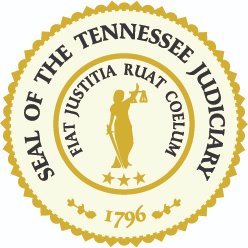What is an I-601 Waiver: Complete Guide
The landscape of U.S. immigration law presents various hurdles for individuals seeking to live in the United States, especially those found inadmissible due to past violations of immigration laws or other grounds. The I-601 Waiver, formally known as the Application for Waiver of Grounds of Inadmissibility, offers a pathway to overcome such barriers. This guide is designed to provide a comprehensive overview of the I-601 Waiver, detailing its purpose, who is eligible, and the steps involved in the application process.
Eligibility for an I-601 Waiver
Individuals may need an I-601 Waiver if they are considered inadmissible to the United States on one or more grounds, such as:
- Criminal and related grounds: Past criminal convictions that render the applicant inadmissible.
- Health-related grounds: Certain medical conditions.
- Immigration fraud or misrepresentation: Misrepresentation or fraud in previous immigration applications or interviews.
- Unlawful presence in the United States: Accumulating unlawful presence in the U.S. and then departing or being removed from the country.
To qualify for an I-601 Waiver, applicants must demonstrate that their inadmissibility would cause extreme hardship to a U.S. citizen or lawful permanent resident spouse or parent. Notably, hardship to the applicant themselves or to a child does not typically qualify under this criterion.
Procedure & Requirements for I-601 Waiver Application
Successfully navigating the I-601 Waiver application process involves several critical steps:
- Assessment: Consulting with an immigration attorney is vital to determine eligibility and to understand the waiver's complexities fully.
- Filing Form I-601: Applicants must complete and submit Form I-601, Application for Waiver of Grounds of Inadmissibility, accompanied by the required filing fee and supporting documentation that substantiates the claim of extreme hardship.
- Providing Evidence of Extreme Hardship: This step is crucial. Applicants must provide detailed documentation and evidence demonstrating the significant impact their inadmissibility would have on their U.S. citizen or lawful permanent resident spouse or parent.
- Await Adjudication: The application will be reviewed by the U.S. Citizenship and Immigration Services (USCIS), which may request additional information, documentation, or an interview.
- Decision: Approval of the waiver means the applicant can proceed with their immigration application. If denied, options to appeal the decision or reapply under changed circumstances may be available.
Related Issues
Applicants face various challenges when applying for an I-601 Waiver, including:
- Proving "Extreme Hardship": This often requires extensive documentation and can be subjective, depending on the adjudicating officer.
- Risk of Denial: A denial can have significant implications for current and future immigration status.
- Emotional and Financial Stress: The process can be lengthy, uncertain, and expensive, impacting applicants and their families.
The I-601 Waiver is a critical tool for individuals deemed inadmissible to the United States, offering a chance to overcome barriers to entry or adjustment of status based on the hardship their inadmissibility would cause to qualifying relatives. Given the waiver's complexity and the high stakes involved, engaging an experienced immigration attorney is crucial to navigating the process effectively and maximizing the chances of a successful outcome.
Meet Attorney Asheesh Sharma – Your Trusted Advisor
Attorney Asheesh Sharma, with 22+ years of professional experience in U.S. immigration law, is a familiar figure both in Australia and the U.S. His frequent visits to Australia and family ties across the country enhance his understanding of the unique needs of Australian clients. His personal experience with the U.S. Consulates in Australia, first as an applicant and then representing clients, brings invaluable insights and empathy to your case.



